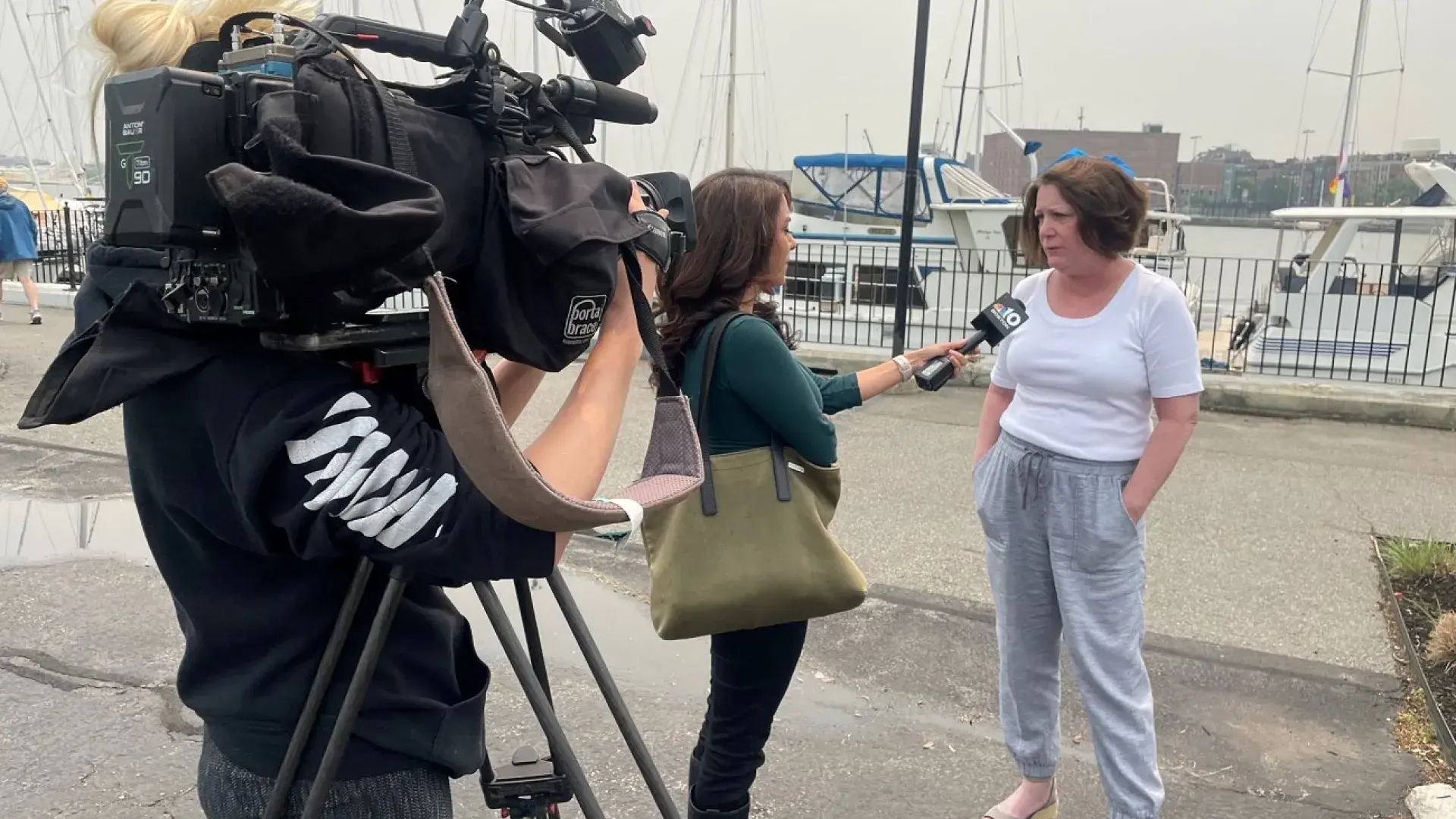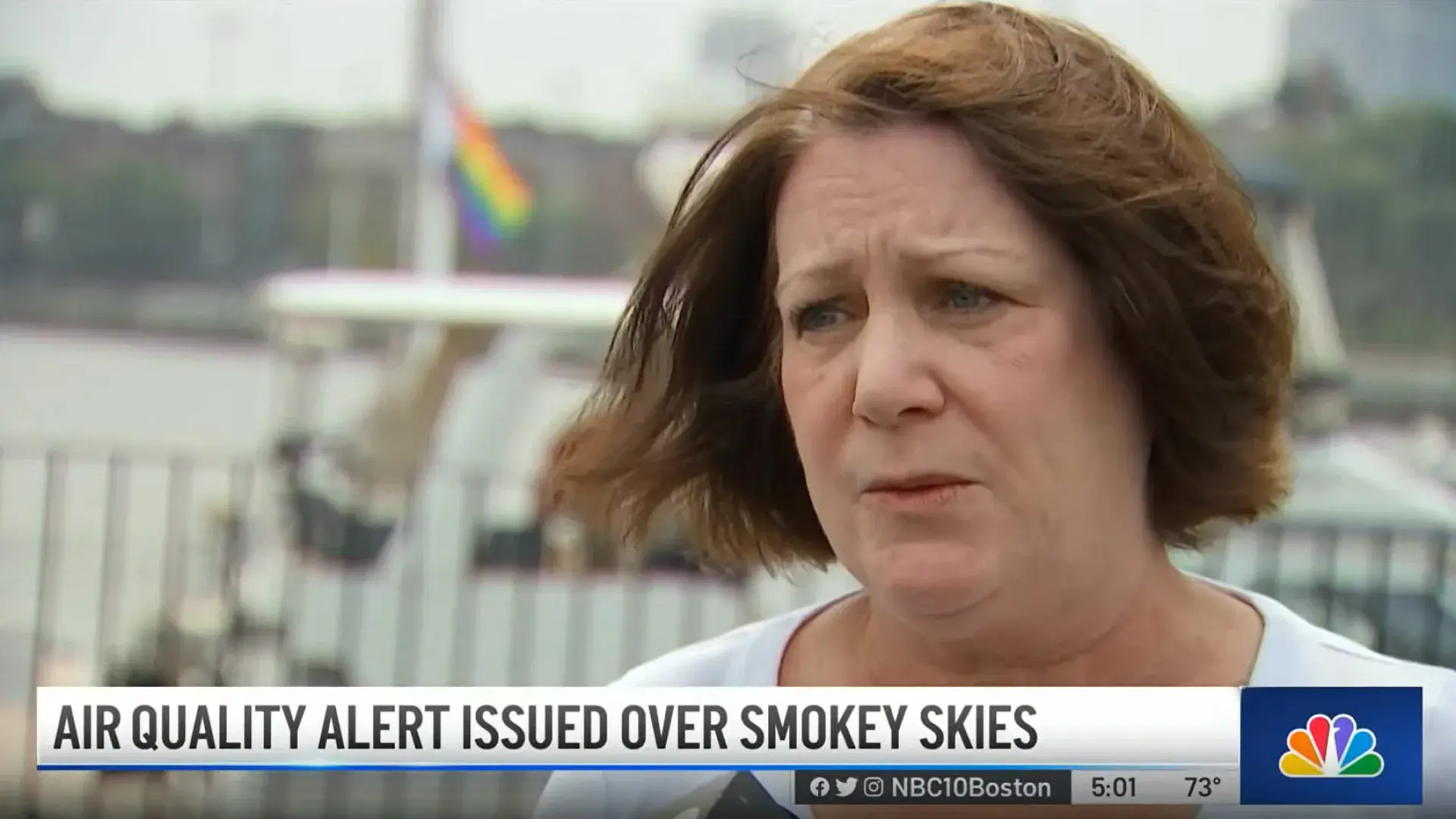
Assoc. Dir. Suellen Breakey speaks to NBC Boston about impact of Canadian wildfires
As the U.S. Environmental Protection Agency issued a poor air quality alert for New England, the MGH Institute’s Center for Climate Change, Climate Justice, and Health explained the reasoning and what people can do to stay safe.
“This is a time when people need to be aware of what’s in the air,” said Suellen Breakey, PhD, RN, Associate Director, Center for Climate Change, Climate Justice, and Health. “And how to mitigate some of the dangers.”
Canadian wildfires are sending smoke south of the border, causing a hazy smog containing Particulate Matter 2.5, tiny particles that are 30 times smaller than a single strand of hair. “PM 2.5 is so small, it can only be seen with an electron microscope,” said Breakey. “That gets into the atmosphere along with other byproducts of the smoke, and it can get into your lungs, it can get into the bloodstream, and it can cause damage to people having system pulmonary disease or cardiac disease. It can also exacerbate asthma.”
Breakey shared her expertise with NBC Boston, which reported on the hazards caused by the windswept smoke.

